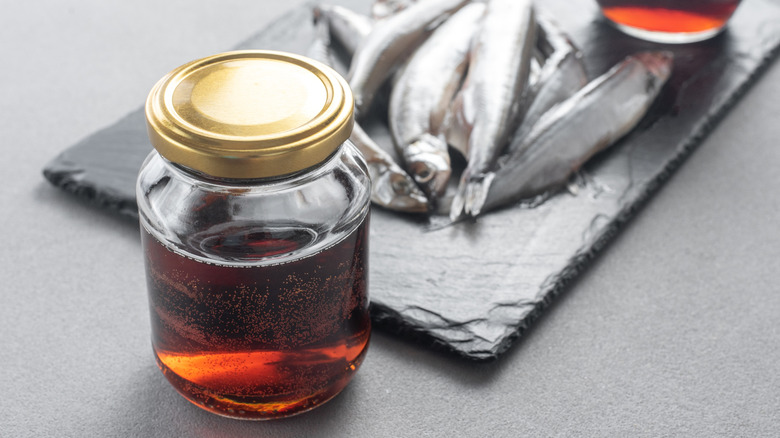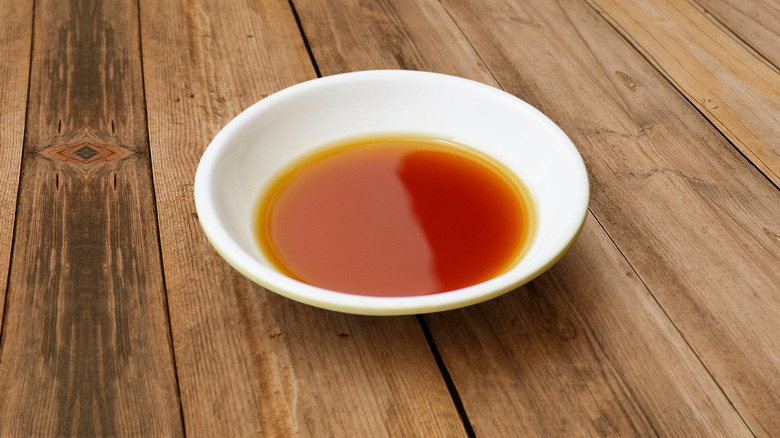Does Fish Sauce Need To Be Refrigerated After Opening?
We get it, there are a lot of condiments to look after these days. Most Americans have a refrigerator door overflowing with hot sauces, mustards, salad dressings, and ketchups. So you can be forgiven if it's hard to keep track of what needs to be stored cold and what can go in the cabinet. If you're eyeing a bottle of fish sauce you bought for a batch of pad thai, don't worry, you don't need to make room in the fridge. Thanks to its very high salt content, fish sauce is perfectly safe to store at room temperature.
If you're new to using it, fish sauce is made from fermented fish. Typically it's done with oily varieties of fin fish that have a lot of natural glutamates, like anchovies, which in turn gives it a ton of umami-rich flavor. It's perhaps most common in southeast Asian cuisine, especially Thai, but you'll find it used in recipes throughout eastern Asia including Chinese, Japanese, and Korean dishes. It was also a big hit in ancient Rome, and we use it today when a recipe needs a big boost of savory flavor like Brussels sprouts, steak brine, and even macaroni and cheese.
Fish sauce can't grow bacteria
The process of making fish sauce takes several months and a lot of salt, but the bonus is that the finished product is shelf stable. The liquid has low water activity, which means that the water in the sauce is chemically bound to salt, so it isn't available for foodborne germs to grow (per a 2015 study in the Asia Pacific Journal of Sustainable Agriculture Food and Energy). It can last for as long as 2 or 3 years before the flavor starts to fade, and the color may change over time, but with a regular-sized bottle from the grocery store you'll probably eat all of the sauce before then anyway.
If the food safety police inside your head just won't let you store fish sauce outside of the fridge, that is perfectly fine, too. It won't hurt the quality of the sauce if it's stored cold. In fact, cooler temperatures will preserve the color and flavor, and they can extend the life of fish sauce. However, it's not a bad idea to write the date on the top of the cap so that you don't completely lose track of time.
If you're on the fence on how to store it, consider how much fish sauce you eat. If it's not an ingredient you use very often, go ahead and push some salad dressings to the side (or check for expiration dates and toss a few) to find a place for it in your fridge. Otherwise, it's perfectly at home next to the soy sauce in your spice cabinet.


